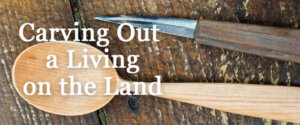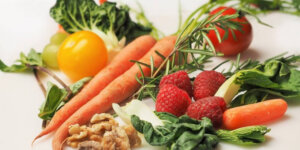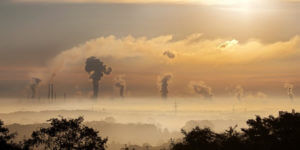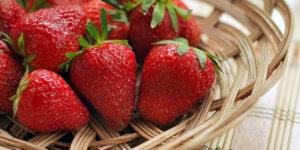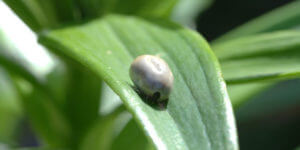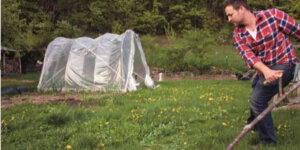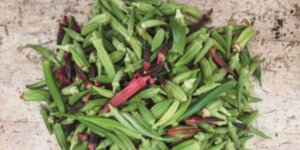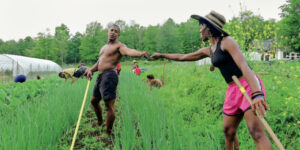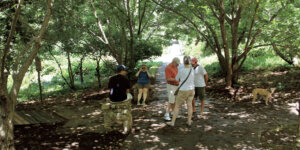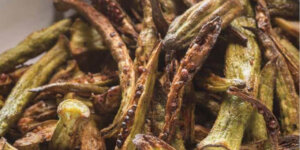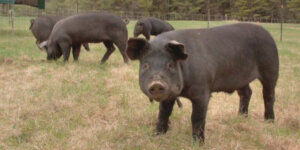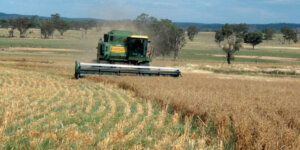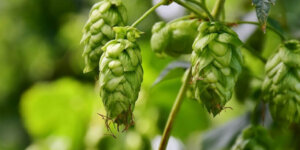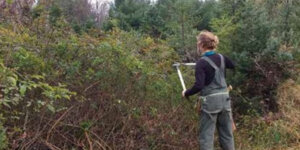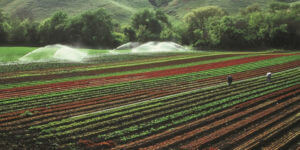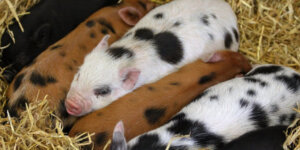Gretchen Kruesi
Your land is only as productive as you allow it to be, and believe it or not, it does know when you spend time appreciating what it has to offer. You might find yourself zoning out while you walk around your property or do daily chores, thinking about nature and your relationship with it. Taking…
Read MoreAlbert Bates is one of the founders of the intentional community and ecovillage movements. A lawyer, scientist, and teacher, he has taught village design, appropriate technology, and permaculture to students from more than sixty countries. Kathleen Draper routinely collaborates with biochar experts from around the globe as a board member of the International Biochar Initiative…
Read More“Peak is a masterpiece of nutritional science from one of the world’s leading authorities on athletic health and performance. It’s a fantastic resource that provides a road map to reaching true wellness.” —Dr. Rocco Monto Dr. Marc Bubbs, ND, CISSN, CSCS, is the Director of Nutrition for the Canadian men’s national basketball team, a speaker,…
Read MoreEating healthy doesn’t always taste the best, but combining your favorite treats with nutritious foods is the perfect balance! Though strawberries and beets may not seem like a good mix, combined with vanilla and cinnamon, they create a smoothie that’s not only healthy, but tastes delicious as well. The following is an excerpt from The…
Read MoreSummer is a time for taking hikes, walks, going camping, or sitting under a tree enjoying the outdoors. You might think that your biggest enemy is the sun, but there’s another one crawling around–ticks. These parasites can infect you and cause a wide variety of symptoms that interfere with how you live your life, and…
Read MoreExpert okra enthusiast Chris Smith writes regularly for The Heirloom Gardener, the Mother Earth News blog, and the Farmers’ Almanac blog. His presentations on the versatility of okra have delighted audiences at food and farming festivals and fairs throughout the Southeast. He is the Communications Manager for Sow True Seed in Asheville, North Carolina, and…
Read MoreApartheid ended in 1994, right? Not according to Leah Penniman, a young, black farmer living in the South End of Albany, NY where a modern day apartheid is taking place. At the root of this issue? Food. Or better said, the lack of access to affordable, healthy food options in Black communities across the country…
Read MoreFor centuries, humans have been migrating in search of better land, opportunities, and quality of life. For some, those migrations were voluntary while others were forced to move due to far more sinister circumstances. The Great Migration is one such case. During the 1900’s through 1970, over six million black people left the rural south…
Read MoreDid you know that the apple traveled to North America the same way the Pilgrims did in the 1600s? Though apple trees are abundant all across the country, they aren’t native to these lands. Apples have a fascinating and complex history that lead them to become an American symbol. The following is an excerpt from…
Read MoreAs Benjamin Franklin stated, “By failing to prepare, you’re preparing to fail.” A good community food forest will always require robust planning but don’t let that scare you! By breaking down the work into the following five project management phases, you not only establish an initial plan you’ve also developed a dynamic system to allow…
Read MoreEver think about eating fries that aren’t made out of potatoes? Why not try okra fries! These easy to make and fun to eat treats are the perfect side to your meal, or you might be tempted to have a whole bowl full. Author Chris Smith pulls this fabulous recipe from Chef Viviane Howard. The…
Read MoreFeeding your animals is a daily and time-consuming activity on a farm. You need to take into consideration the types of animals and their individual needs, along with general best practices. This can seem like a big task to take on, but let’s start with feeding the pigs first! The following is an excerpt from…
Read MoreFor as far back as we can remember, humans have been driven by the Mechanical Mind – a desire to evolve, to expand, to consume, to manipulate everything around them to meet their needs without thinking about the consequences. Yet some 200,000 years ago, before the advent of agriculture, there was a different view and…
Read MoreYour thyroid is responsible for controlling many of your body’s functions including metabolism, temperature, and controls some hormones. Hyperthyroidism occurs when your thyroid overproduces hormones, which can lead to a variety of diseases including Graves’ disease. Though there are many different medications to relieve the symptoms of hyperthyroidism, there are also more natural options that…
Read MoreFor you IPA-loving readers, you may be asking yourself if there is any legitimacy to our query: The answer, of course, is TO HOP. But what if we told you there is another way? It’s okay, you can keep drinking your IPA while you read this but by the end, you may be rethinking everything…
Read MoreBuying a new property is exciting. You might have hundreds of ideas running through your head about where you want to put buildings or clear away trees or start planting. Immediately starting these projects may not be in your farm’s best interest, though, and can drastically impact the landscape. Often, features like meadows or ponds…
Read MoreTourism, infrastructure, electricity. What do all these have in common? They’re impacted by global warming. We like to think of global warming as ocean temperatures rising and more carbon dioxide in the air. That isn’t the whole truth. Our changing climate is at the root of many large issues, though the connection might have been…
Read MoreOkra, slime is gold! This pod-producing vegetable is a nutritional powerhouse and has been used throughout history for medicinal, culinary and cosmetics purposes. Discover the benefits of okra when eaten or use the slime from okra for glowing skin, thick shiny hair and strong nails, among others. The following is an excerpt from The Whole…
Read MoreMinerals from soil and outside water sources find themselves in irrigation systems. When you water your land, these minerals infiltrate the soil and change its composition. Your plants are more impacted by their presence than meets the eye, but what exactly is the relationship? The following is an excerpt from Water in Plain Sight by…
Read MoreGroups of piglets running around a farm or homestead seems like a dream come true. When it comes to making sure each one is healthy and growing properly, it can get chaotic trying to figure out which pig is which. Using identification strategies to keep them organized is not only in your best interest but…
Read More


